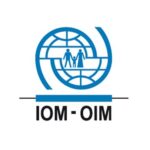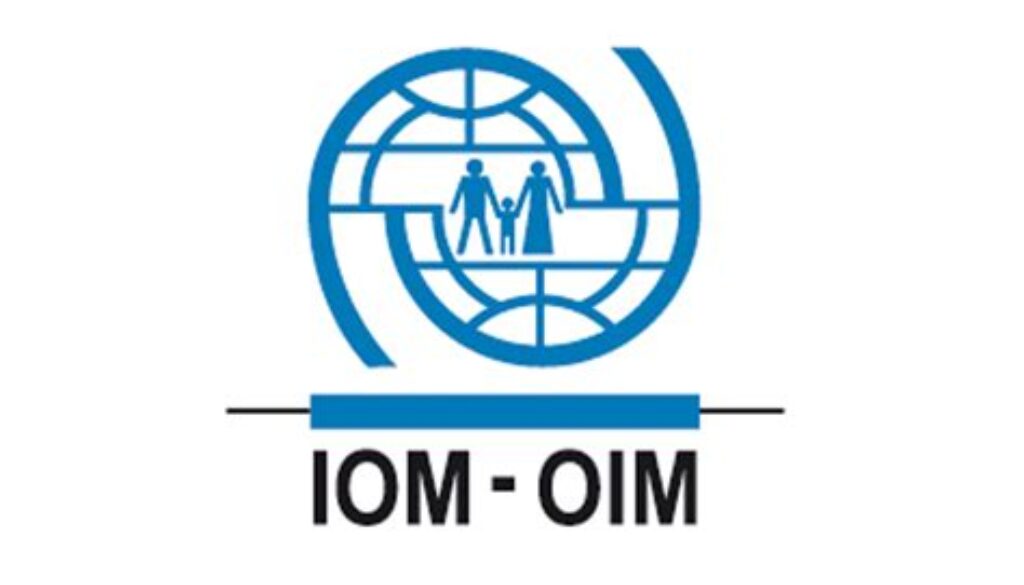Senior Emergency Coordinator (P4) Job Ref. SOM/IOM/082324

Website IOM
Context:
Under the overall supervision of the Chief of Mission and under the direct supervision of the
Senior Programme Coordinator (EPC), the Senior Emergency Coordinator will be responsible
and accountable for the development, oversight and coordination of IOM’s operations in
response to humanitarian challenges in the Somalia Country Office including Camp
Coordination and Camp Management, Emergency Water, Sanitation and Hygiene (WASH),
Emergency Shelter, Non-food Items (ES/NFI) , Shelter Cash Based Interventions, Displacement
Tracking Matrix (DTM), Emergency Health, and Protection. The Senior Emergency Coordinator
will ensure strategic linkages to other parts of IOM’s work, including durable solutions,
resilience, community stabilization and social cohesion.
Core Functions / Responsibilities:
1. Lead and coordinate IOM emergency action with a view to ensuring that it is principled,
timely, effective and efficient, and contributes to longer-term recovery.
2. Manage all operational, financial and administrative aspects of the emergency programs
including supervision of project staff.
3. Develop and adjust over time the overall direction and strategy of the emergency response in
coordination with Department of Operations and Emergencies (DOE), Regional Office and
Program/Project Managers.
4. Ensure a comprehensive emergency response including good and effective coordination of
emergency projects activities:
• Lead and coordinate the development of a common strategic vision for operations;
• Ensure that response efforts are inclusive and coordinated by regularly convening and leading
coordination meetings;
• Ensure that all necessary efforts are coordinated for the programmes to be funded sufficiently
and in a timely manner, by locally leading inclusive resource mobilization efforts, overseeing
IOM’s sector support functions and emergency response programs; and,
• Liaise with programme managers, sector coordinators, relevant sectors and humanitarian
actors to ensure timely, safe and unimpeded access by emergency programmes to populations
in need.
5. Ensure adequate IOM Response Preparedness:
• Lead efforts to improve coordination in the response preparedness capacity of programmes;
• Ensure that programmatic response preparedness is in line with inter-sector common planning
frameworks; and,
• Expend all necessary efforts to ensure that the preparedness efforts envisaged by IOM at
different sectors are implemented.
6. Work in close collaboration with the Senior Programme Coordinator (EPC) and other
Programme Managers to ensure that all the components of the emergency response and the
regular recovery and development activities operate in a coherent and mutually supportive
manner.
7. Develop, monitor and evaluate project activities while ensuring proper utilization of Standard
Operating Procedures (SOPs), manuals, guidance notes, Monitoring and Evaluation (M&E)
tools and methodologies in the implementation of project activities.
8. Ensure adequate information management and reporting on project activities including raising
IOM’s visibility. Provide regular updates and develop summaries, press releases and other
relevant materials. Ensure compliance with IOM and donor regulations and obligations as
indicated in the funding agreements, project documents, work plans and budgets, with emphasis
on timely and accurate reporting.
9. Develop and maintain strong partnerships and regular liaison with IOM program partners
such as key Government institutions, UN agencies, private sectors and NGOs aiming at
enhancing coordination of humanitarian activities, facilitating the implementation of ongoing
activities and implementation of joint activities.
10. Liaise with donor representatives and periodically brief them on current and planned
programs in order to mobilize necessary financial support.
11. Identify opportunities for emergency response programmes and develop new project
proposals in line with IOM humanitarian response strategy and in coordination with the Senior
Programme Coordinator (EPC), Project Development Unit, relevant Regional Thematic
Specialists and Project Managers.
12. Represent IOM in humanitarian partner meetings and ensure the adequate liaison with other
relevant stakeholders as requested.
13. Provide supervision, guidance and direction to all managers and staff in the Unit.
14. Undertake duty travel to the field to monitor emergency programs and to identify bottlenecks
and implement solutions.
15. Perform such other duties as may be assigned.
Required Qualifications and Experience:
Education
• Master’s degree in Political or Social Sciences, International Relations, Humanitarian Affairs or
a related field from an accredited academic institution with seven years of relevant professional
experience; or
• University degree in the above fields with nine years of relevant professional experience.
Experience
• Experience in emergency settings and complex environments:
• Experience in programme management with strong knowledge of IOM/UN project life cycles;
• Experience in liaising with government authorities, inter-governmental institutions, other
national and international institutions and national and international NGOs;
• Experience in Camp Coordination and Camp Management, Emergency WASH, Emergency
Shelter and Non-food Items (ES/NFI), Shelter, CBI, DTM, Emergency Health, Protection and
socio-economic recovery;
• Familiarity with IOM/UN administrative and financial management;
Skills
• Excellent leadership, coordination and information management skills.
• Sound judgment, ability to extract, interpret, analyse and format data and make decision
rapidly to resolve operational problems.
• Capacity to work effectively in high-pressure, rapidly changing environment
• Solid computer skills, including proficiency in MS Office package (Excel, PowerPoint, Outlook).
Languages
IOM’s official languages are English, French, and Spanish.
For this position, fluency in English is required (oral and written). Working knowledge of Somali
is an advantage.
Proficiency of language(s) required will be specifically evaluated during the selection process,
which may include written and/or oral assessments.
Notes1
Accredited Universities are the ones listed in the UNESCO World Higher Education Database
(https://whed.net/home.php).
Required Competencies:
Values – all IOM staff members must abide by and demonstrate these five values:
• Inclusion and respect for diversity: Respects and promotes individual and cultural
differences. Encourages diversity and inclusion.
• Integrity and transparency: Maintains high ethical standards and acts in a manner
consistent with organizational principles/rules and standards of conduct.
• Professionalism: Demonstrates ability to work in a composed, competent and committed
manner and exercises careful judgment in meeting day-to-day challenges.
• Courage: Demonstrates willingness to take a stand on issues of importance.
• Empathy: Shows compassion for others, makes people feel safe, respected and fairly
treated.
Core Competencies – behavioural indicators level 3
• Teamwork: Develops and promotes effective collaboration within and across units to achieve
shared goals and optimize results.
• Delivering results: Produces and delivers quality results in a service-oriented and timely
manner. Is action oriented and committed to achieving agreed outcomes.
• Managing and sharing knowledge: Continuously seeks to learn, share knowledge and
innovate.
• Accountability: Takes ownership for achieving the Organization’s priorities and assumes
responsibility for own actions and delegated work.
• Communication: Encourages and contributes to clear and open communication. Explains
complex matters in an informative, inspiring and motivational way.
Managerial Competencies – behavioural indicators level 3
• Leadership: Provides a clear sense of direction, leads by example and demonstrates the
ability to carry out the Organization’s vision. Assists others to realize and develop their
leadership and professional potential.
• Empowering others: Creates an enabling environment where staff can contribute their best
and develop their potential.
• Building Trust: Promotes shared values and creates an atmosphere of trust and honesty.
• Strategic thinking and vision: Works strategically to realize the Organization’s goals and
communicates a clear strategic direction.
• Humility: Leads with humility and shows openness to acknowledging own shortcomings.
IOM’s competency framework can be found at this link.
https://www.iom.int/sites/default/files/about-iom/iom_revised_competency_framework_external.p
df
Competencies will be assessed during a competency-based interview.

